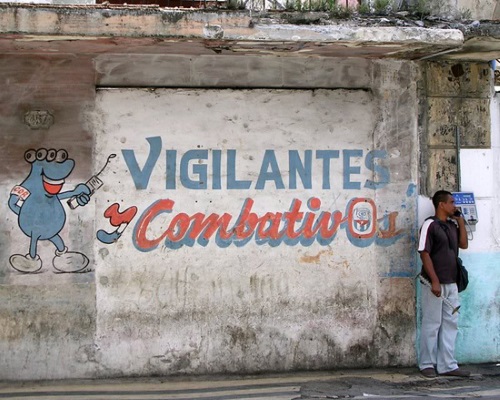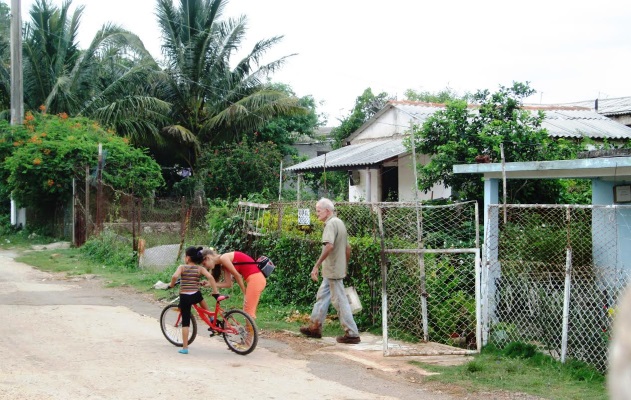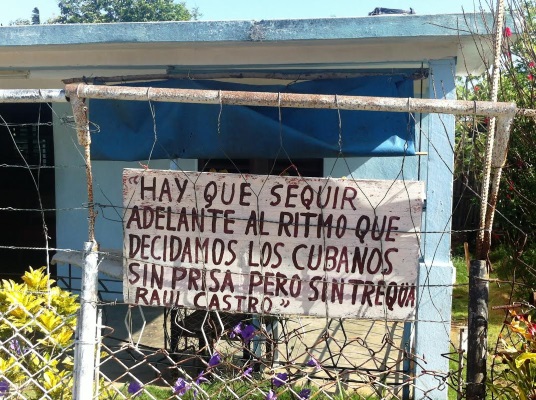
 Cubanet.org, Camilo Ernesto Olivera Peidro, 18 June 2015 – An old man is going out of his house in the little village named Henequen Viejo, near the Port of Mariel. Everyone there knows him as Alfonso. In reality, his name is Idelfonso Estevez. At first glance he seems like an old man like so many others.
Cubanet.org, Camilo Ernesto Olivera Peidro, 18 June 2015 – An old man is going out of his house in the little village named Henequen Viejo, near the Port of Mariel. Everyone there knows him as Alfonso. In reality, his name is Idelfonso Estevez. At first glance he seems like an old man like so many others.
However, the village’s inhabitants and his closest family members fear and hate him. Alfonso is not surrounded by the protective affection of his fellow man. The local members of the Ministry of the Interior (MININT) take care of him. He is one of their most notorious “snitches.”
His story began years ago. He belonged to a group known as the “Guarapitos”: Alfonso, Jesus, El Viola, Camilo and Titico Borrego. They formed a group of auxiliaries in service to MININT at the beginning of the 1970’s. They dedicated themselves to watching everyone in Henequen Viejo. They gave away those who opposed the regime or anyone who annoyed them. They turned the area into a stronghold of terror.
When the property seizures began in the early months of 1959, the “Guarapitos” proposed ravaging a farm named La Francesa belonging to Pedro “Pepin” Carbonell and his family. The “Guarapitos” arrived and confiscated the largest cattle and slaughtered them for their consumption. No one could touch them. It was futile to try to denounce them to the authorities. They were protected by being efficient tools of Revolutionary terror.
Later other individuals joined the group with the same vocation of informing. Among them were Faustino Sanchez, Lucas Cabrera Lugo (Tatico) and Benito Mirabal.
Benito Mirabal and the Fisherman
They nicknamed Benito Mariabal “Moustache.” For years, he was one of the most prominent snitching characters in the region. He denounced people trying to leave the country and also reported street vendors. He was sent by State Security officers to watch, day and night, those named as dissidents.
In the last years of his life a rare disease attacked his legs. The doctors diagnosed it as gaseous gangrene, and they had to amputate them.
While Benito was hospitalized, the fisherman residing in the area, friends of his family, brought good and fresh fish for his nourishment. Several of them used to and do make their living from what they catch at sea.
Sometime after having recovered, Moustache Mirabal asked one of his grandsons to take him, in his wheelchair, to the nearest guard post. Once there, he denounced those same fishermen who had fed him. He accused them of illegal fishing. Several of the fishermen lost their licenses, had their boats confiscated or were fined.

Alfonso is capable of snitching even on his mother if she were resurrected
Certainly Idelfonso Estevez may seem like just another old man when he goes out of his house. But right now he is known as the “greatest trumpet” (biggest informer) in Henequen Viejo.
So that no one may doubt his unlimited commitment to the regime, he has placed on the fence around his house several pro-government signs. One of them alludes to a sentence of Raul Castro and the other advertises the “process” (sic) for strengthening the Committee in Defense of the Revolution (CDR).

A family source who asked to remain anonymous told us that during the Special Period, this man’s refrigerator was all eaten away with salt residue, and he needed it fixed. A nephew, who did this kind of work informally, restored it for him at no charge. Two blocks away lived Ricardo, brother of Idelfonso. He had a little chain saw with which he did carpenter work. Neighbors commissioned broomsticks, knife handles, and things of that sort.
Two weeks later there appeared in the area two inspectors. They came checking on who had private jobs without being licensed and paying taxes. They went to see Idelfonso, and he, without thinking twice, denounced his nephew and his brother. Idelfonso, “The Guarapitos” and all the guys that are like him, would “snitch” even on his mother if she were resurrected, he said.
For more about the author click the link below.
Translated by MLK
